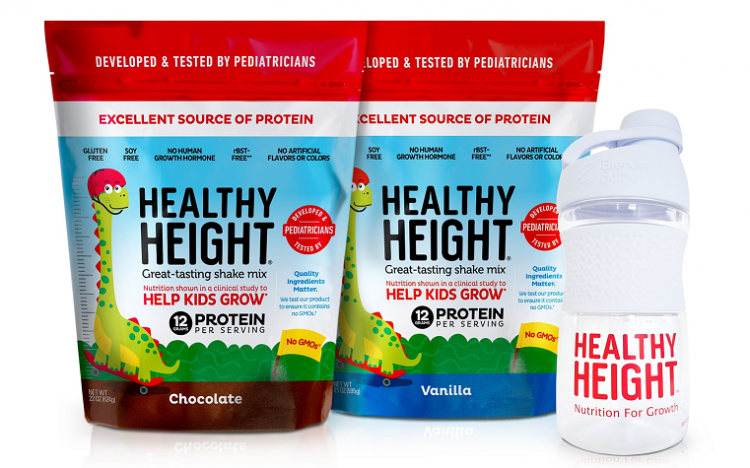Protein and ADHD: Year-long RCT to assess Healthy Height shake impact on kids aged three to nine

Healthy Height is the flagship product of ASX-listed company Nutritional Growth Solutions. The formula is sold in the US, Israel, India, and China.
The product was clinically proven to increase height and weight in short and lean children aged three to nine by 13.8 per cent to 34 per cent to their annual growth, while maintaining their body mass index (BMI) over a one-year period.
The upcoming trial will measure changes in the children’s height, weight, BMI, fat mass and muscle mass, dietary, physical activity patterns, and ADHD symptoms, Professor Moshe Phillip, specialist in endocrinology and internal medicine at the Schneider Children’s Medical Centre and Dr. Michal Yackobovitch-Gavan, director of clinical studies at NGS told NutraIngredients-Asia.
Also a year-long trial, it will recruit between 70 and 140 children below 10 years old and are currently treated for ADHD through prescribed stimulant medicines.
The trial is divided into two phases.
The first six months of the trial will be double-blind, and placebo controlled, where the intervention group receives two servings of Healthy Height daily, while the control group receives a placebo low caloric powder formula with no added vitamins and minerals.
In the subsequent six months, all participants will receive two servings of Healthy Height in an open-label trial.
The trial will take place in the Schneider Children’s Medical Centre in Israel.
Decreased appetite is the most frequently reported side effect in ADHD children receiving stimulant treatment. This in turns affect weight gain and BMI.
A recent study by Chinese researchers showed that six-month use of the stimulant drug methylphenidate had significantly reduced the z-scores of height, weight, and BMI of children and adolescents with ADHD, due to decreased appetite.
“ADHD is a prevalent disorder globally with treatment adverse side effects, including decreased appetite.
“In the U.S., insurance coverage decisions by commercial insurance and government payers are tied to medical necessity and discreet diagnoses. If the trial provides clear evidence that Healthy Height supports children with an ADHD diagnosis who have been prescribed meds achieve normal growth and counteract the negative effects of the drugs, we believe the payers will be more likely to cover Healthy Height alongside an ADHD diagnosis,” CEO and MD Liron Fendell said.
Some existing studies also attempted to improve appetite in children taking Ritalin, a stimulant drug.
In Iran, researchers studied the impact of melatonin supplementation on the dietary intake, growth and development of children with ADHD and were on Ritalin. Results showed that mean height and weight were significantly increased in melatonin treated children before and after the trial.
Effects of long-term stimulant use
Citing findings from long-term, large cohort studies, NGS added that extended use of stimulants had led to overweight problems in adolescence and young adults with ADHD.
“The mechanisms for the short-term reduction in BMI followed by a weight rebound [from childhood] into adolescence are unclear. Several possible mechanisms have been suggested, such as poor dietary patterns and low physical activity level among children taking medication.
“Indeed, higher rates of poor diet, regardless of medication, were reported in children with ADHD as compared to children with no ADHD," said Prof Philip.



















